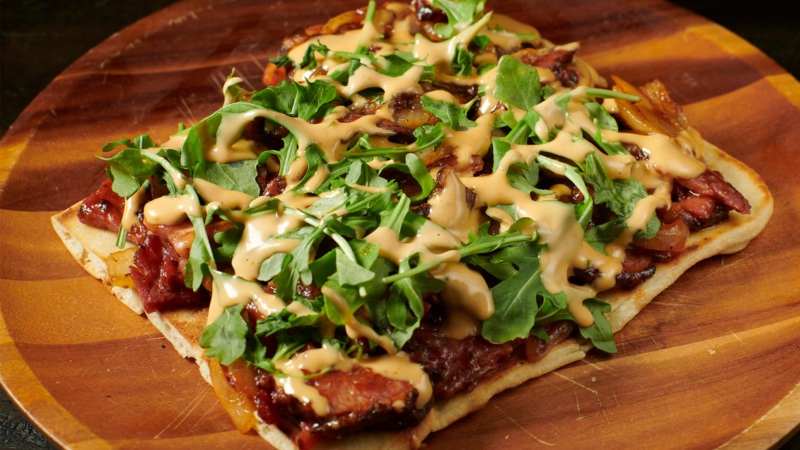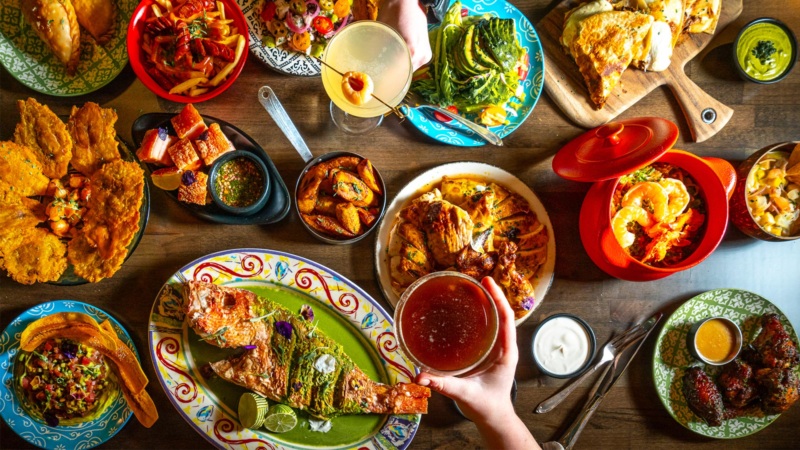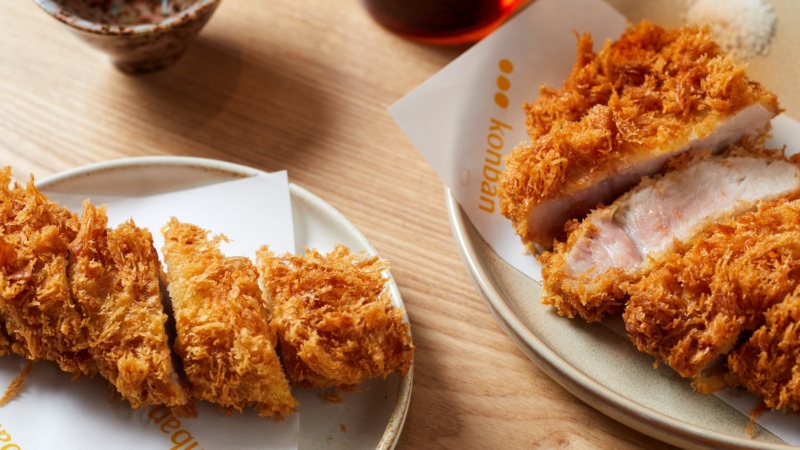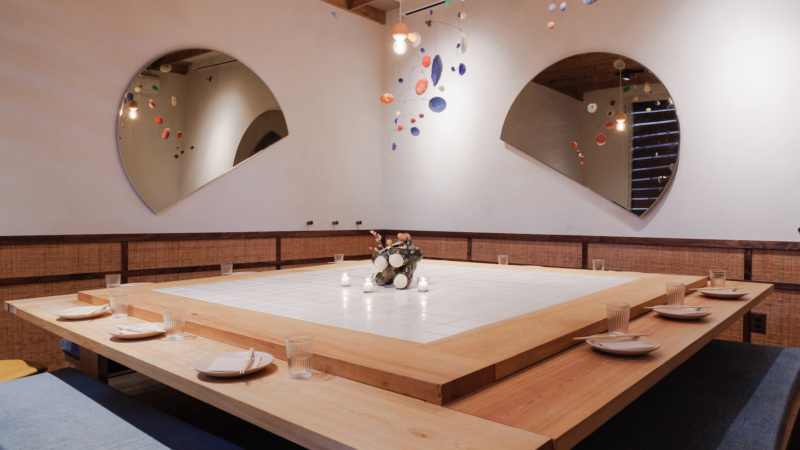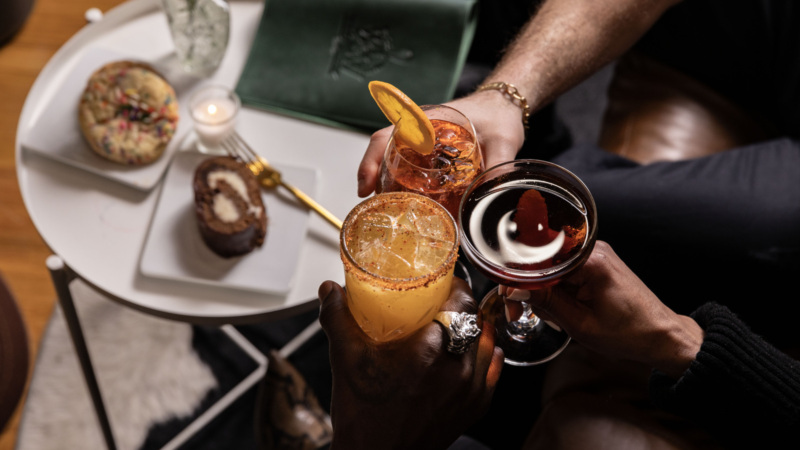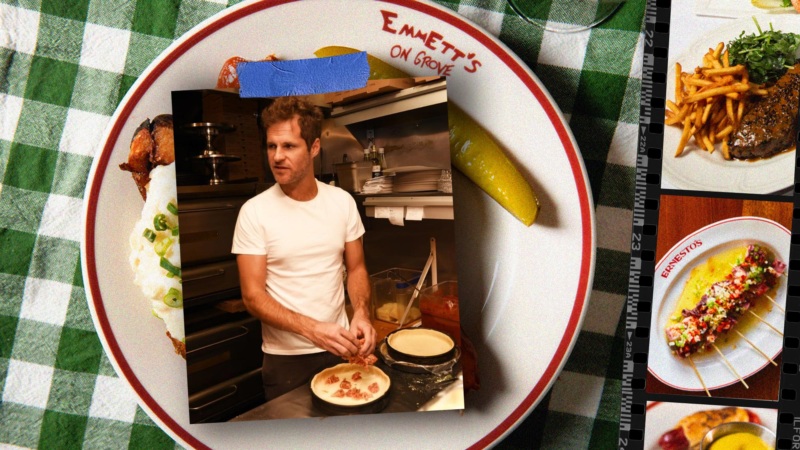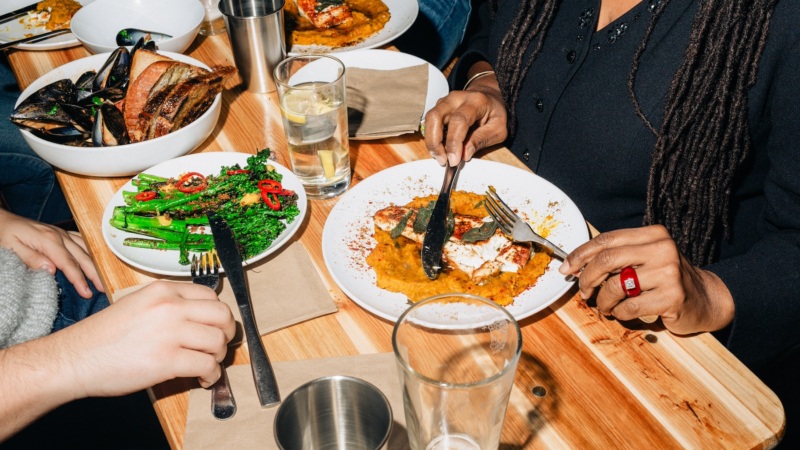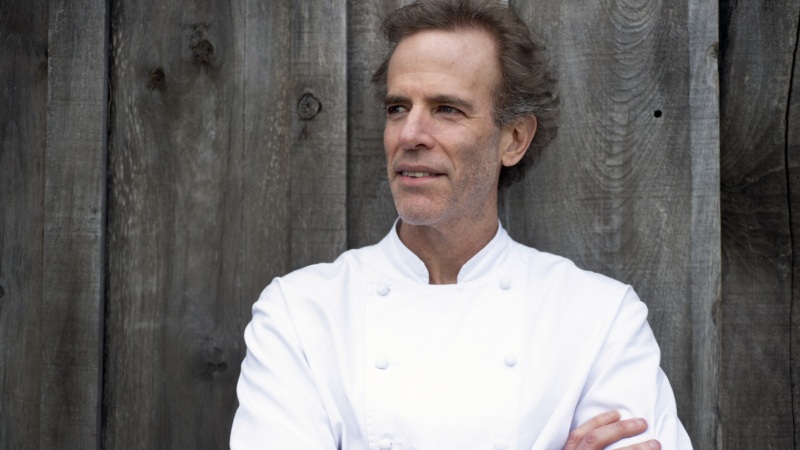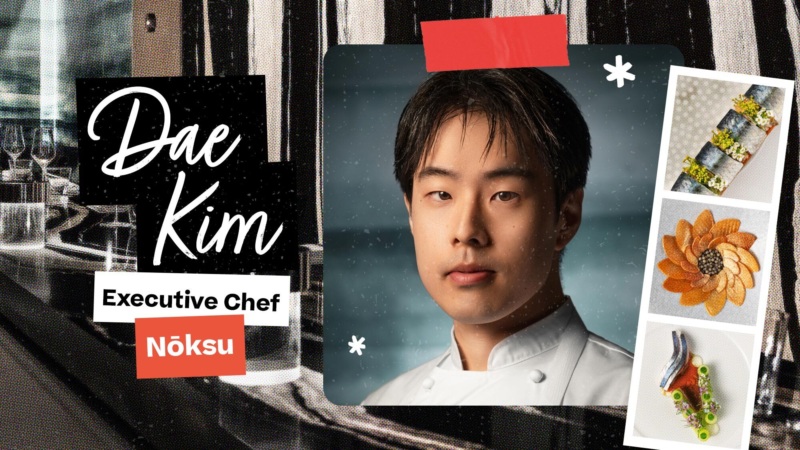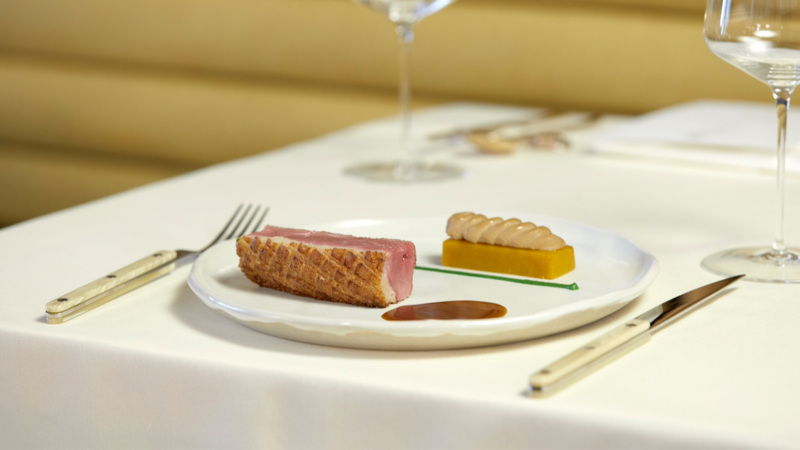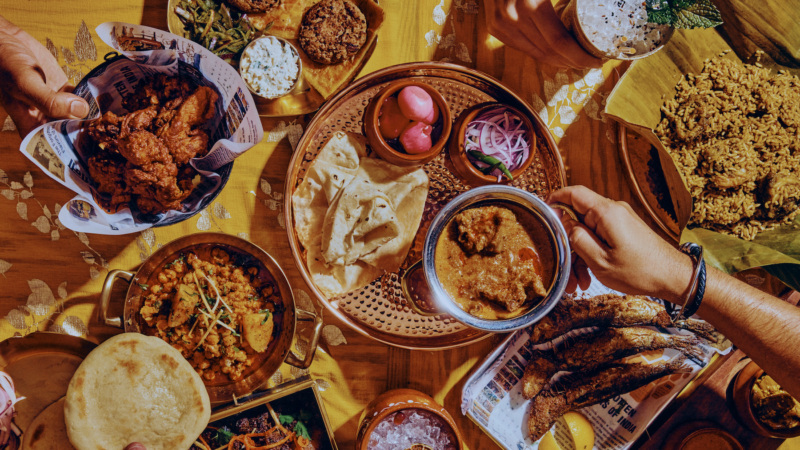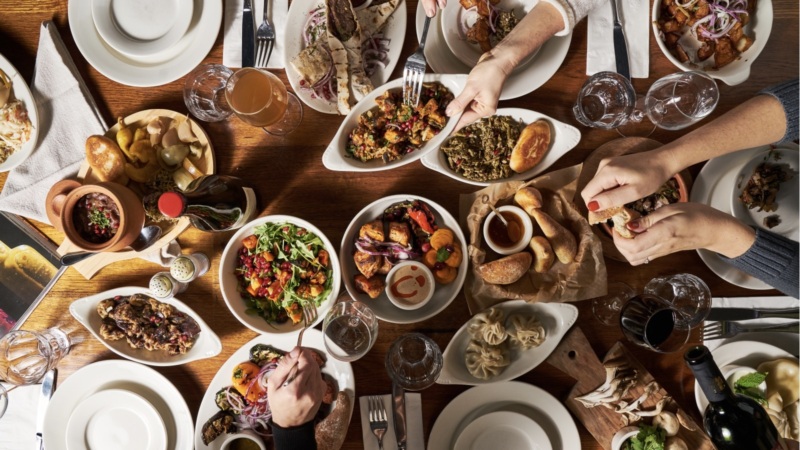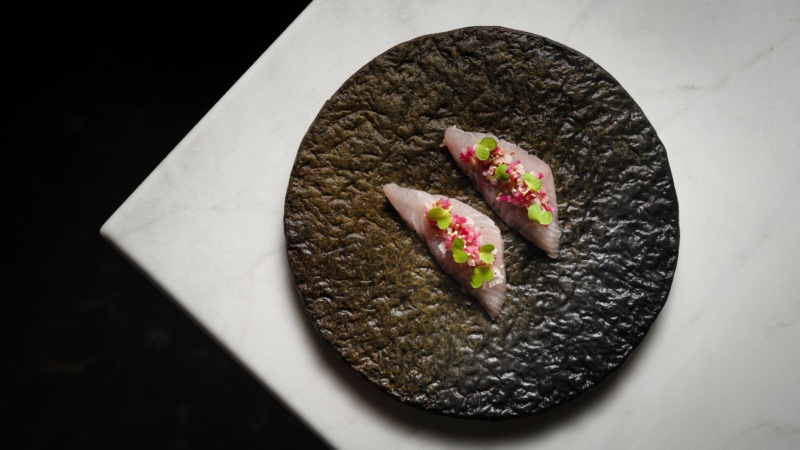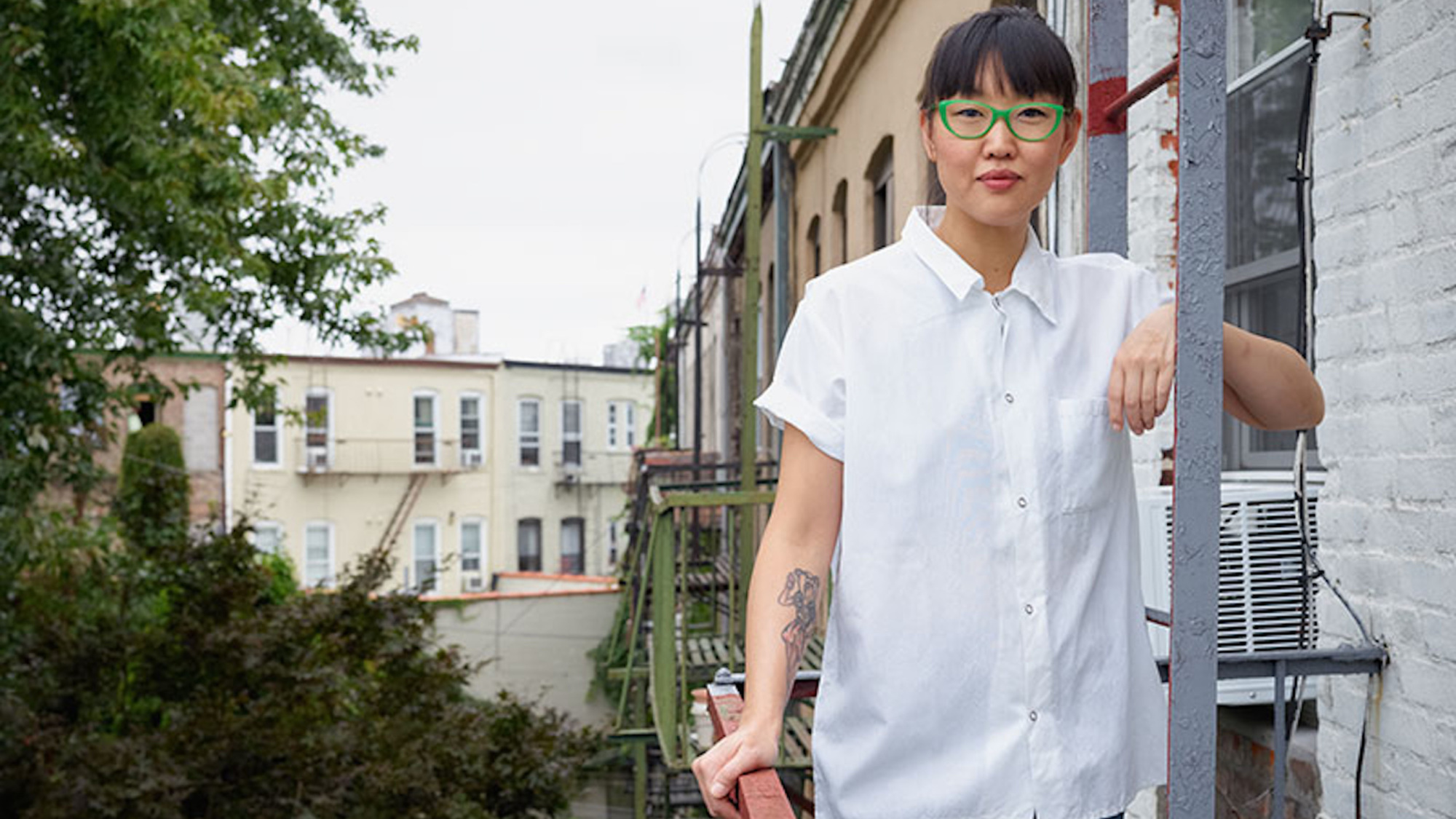
All Kate Telfeyan Wants Is a Better Restaurant Industry
What happens when you write an article that decries the relationship between food media and the rise of toxic restaurant leaders, only to find yourself becoming a restaurant leader yourself a year later?
That’s exactly where Kate Telfeyan, chef and co-owner of New York’s Porcelain in Ridgewood, Queens, finds herself these days. But for Telfeyan, the answer is clear: “I need to practice what I preach and be the kind of chef and owner that I would want to work for,” she says.
- What It’s Like to Be an Asian American Restaurant Owner Right Now
- A Conversation with Chefs Stopping AAPI Hate
- At Chicago’s Perilla, Intention Runs Deeper Than Dinner
- Tear Down the Restaurant Industry? Virtue’s Erick Williams Would Rather Lead By Building From Within
- Hmong Food Isn’t a Cuisine. It’s a Philosophy.
Before Telfeyan became a co-owner and chef of Porcelain this spring, it was an all-day Austrian café that served wiener schnitzel and strudel. Now, it’s become an all-day café where you can try some of the city’s most exciting dishes, with Korean breakfast sets of rolled omelets and barley soybean dashi, crispy lamb sandwiches for lunch, and nori fried pork chops and triple chile yuba for dinner. The charming corner restaurant itself, which first opened in 2019, feels like a movie set — and it was at one point. The restaurant, a former store and meeting space for a nearby church, had a cameo in Martin Scorsese’s “The Irishman.”
Last year, when the pandemic struck, Porcelain, like many other restaurants, began hosting pop-ups from local chefs, and Telfeyan’s “Vaguely Asian Foods” was one of them. Eventually, owner Mike Stamatelos decided to ask Telfeyan if she wanted to become a co-owner and executive chef — and that’s how Telfeyan now finds herself in this position of, well, being a part of the machine that, for so long, she has raged against.
It’s a paradoxical position, but one that, for now, she’s grappling with head on.
“If you are in a position of power — you know, power is such a problematic word — but if you’re in a leadership position like I am, I think it is absolutely and specifically my responsibility to create and manifest the world that I have always said could be possible in the restaurant industry,” Telfeyan says. “And within the best of my ability, within the power that I have to do that, I strive every day to do that.”
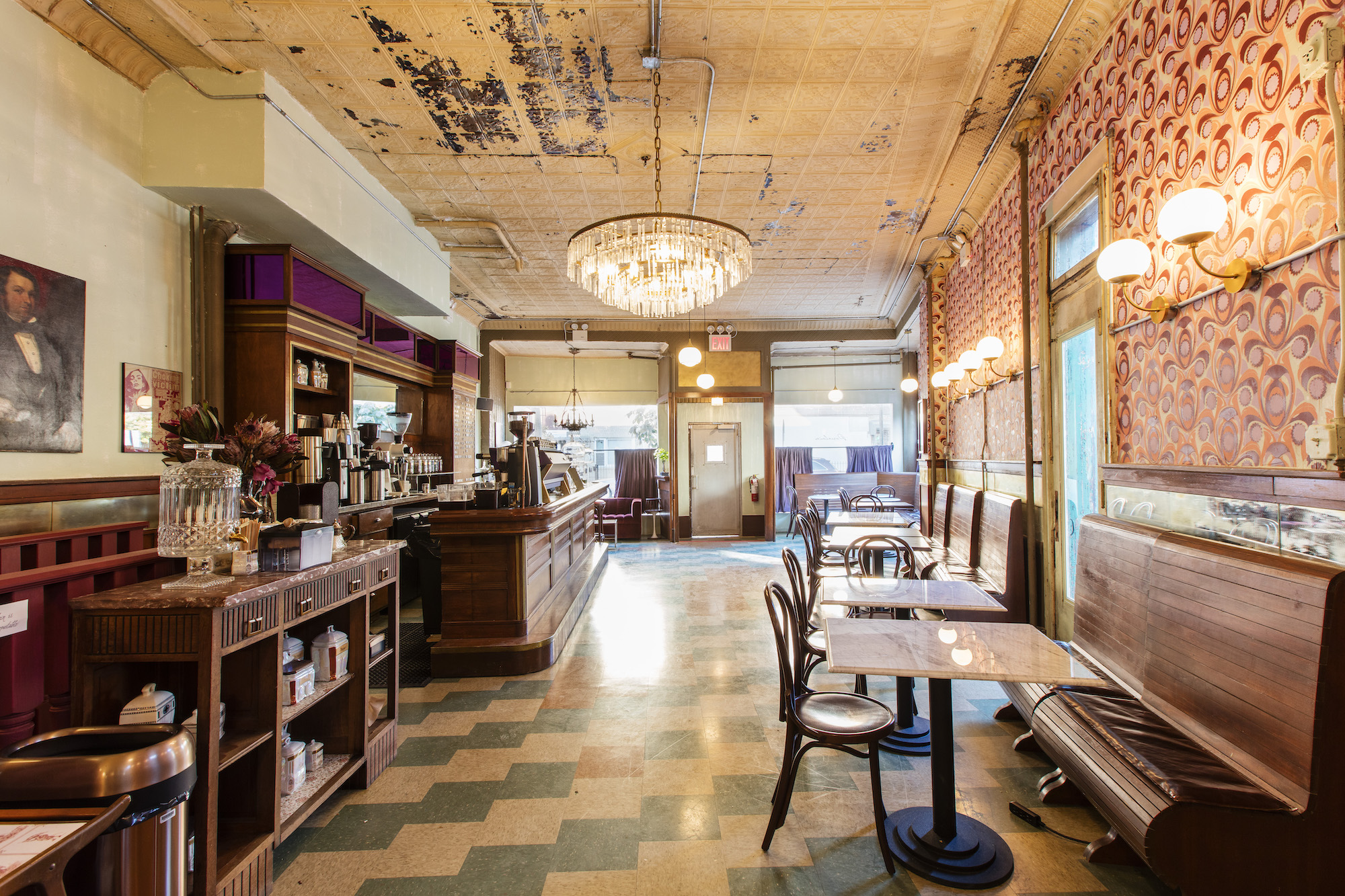
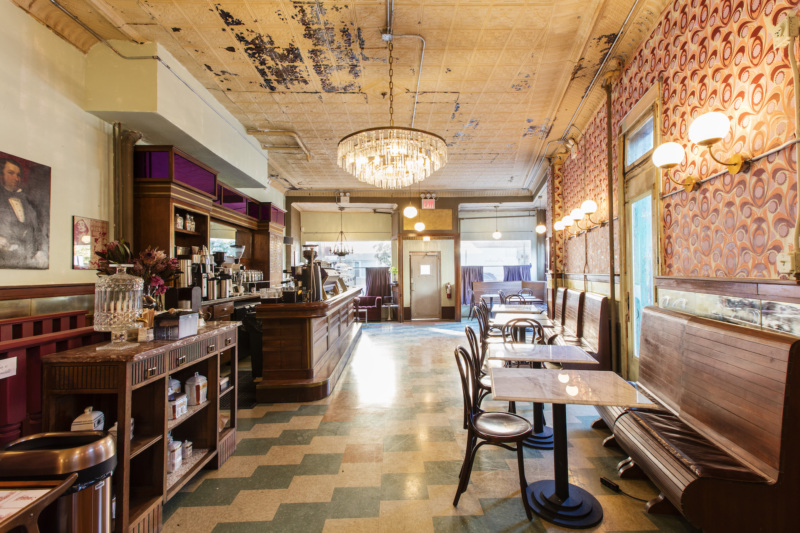
Telfeyan is a bit of a non-traditional restaurant lifer, with a portfolio of different restaurant experiences. She’s done everything from public relations and restaurant operations to working as a line cook to being the head chef at the Bushwick location of Mission Chinese Food.
Having each of those different experiences in the world of restaurants gives Telfeyan an acutely unique perspective on this industry she loves. And because she loves it so much, she’d also like nothing more than for it to burn down and be rebuilt from the ground up.
Today, Telfeyan thinks the restaurant industry has more or less returned to the status quo. She’s happy that people are at least having conversations about how to build a better restaurant industry and calling out bad behavior but, she wonders: Without real accountability, can we ever really move forward?
Accountability, she says, “starts with the ownership and the operations behind it.” But she’s still not letting the media off the hook, either: “The media and other people see restaurants as a frivolity, versus as a business or as a sustainable model or means of people supporting themselves,” Telfeyan says. “[Restaurants] are little ecosystems that are existing and supporting a network of people. And if those little ecosystems are run by someone who’s a bad seed at the center, it’s going to take down the entire ecosystem.”
Now that she’s at the center of her own restaurant ecosystem, Telfeyan says she is committed to making positive changes that she can control directly. And at the same time, she’s also finding her own voice and identity through her cooking, and using it, in some ways, to advocate for the Asian American community.
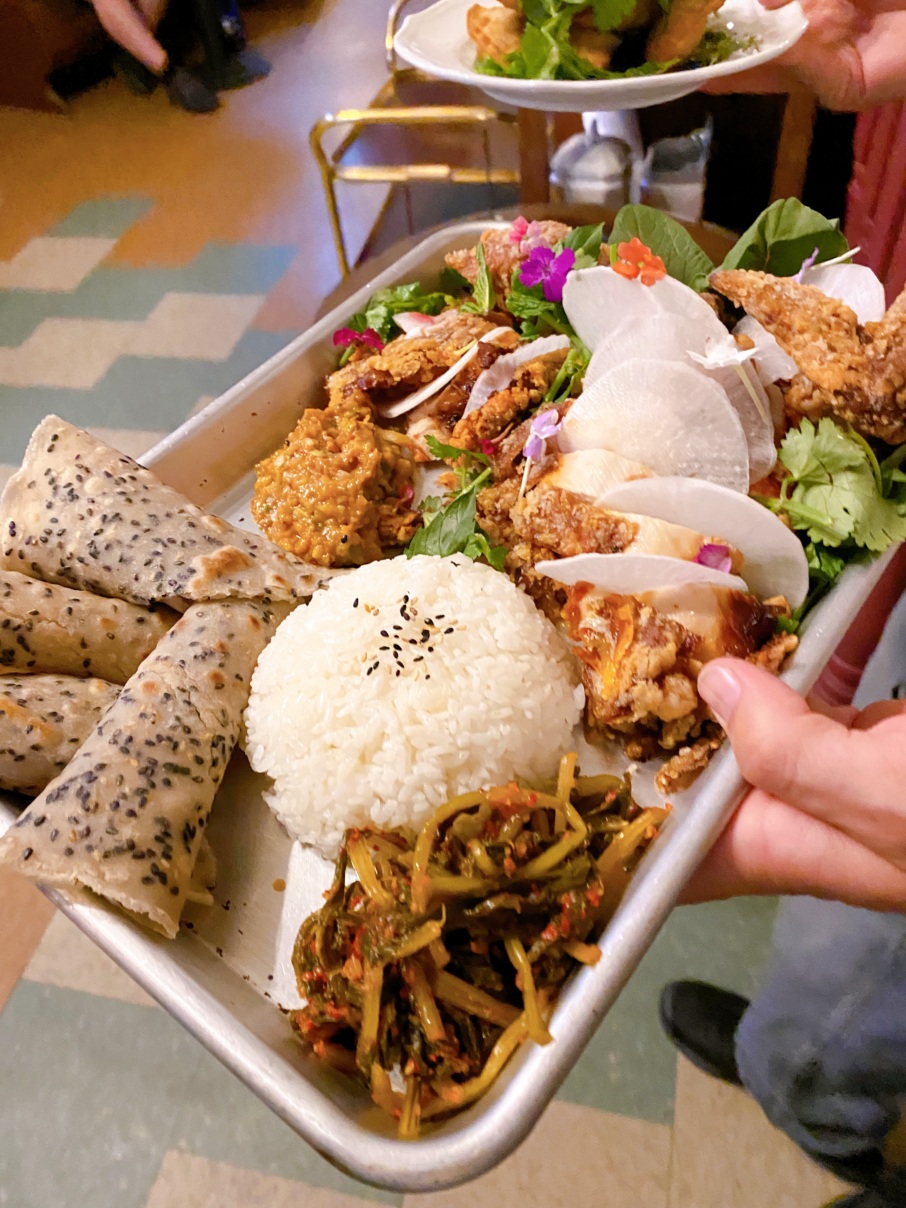
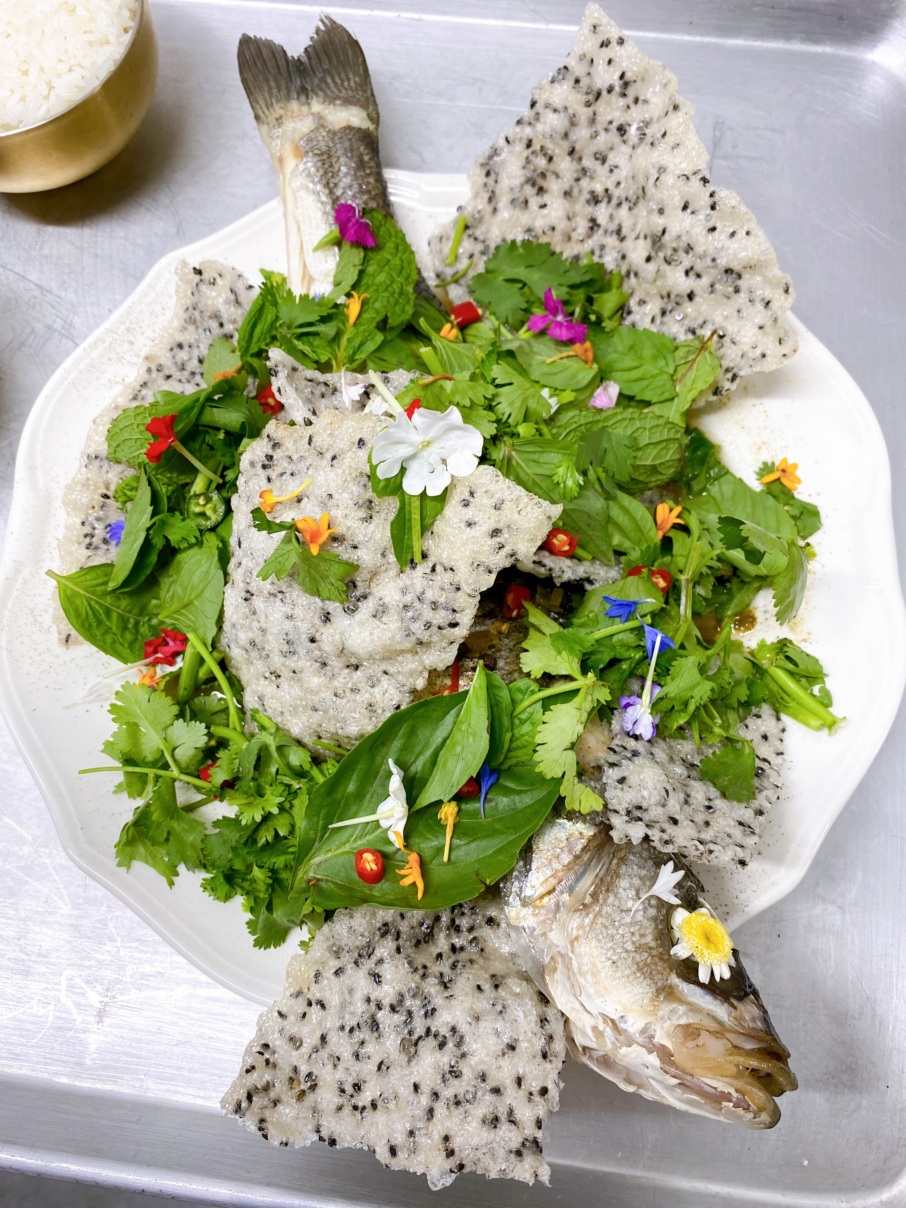
Telfeyan’s food at Porcelain is best described as eclectic, singular, and, like the name of her pandemic pop-up, “Vaguely Asian.” She mixes chewy Korean rice cakes and plump prawns with celtuce, cucumber, and salted chile pepper with a heavy dose of freshly cracked black pepper. She takes thin slices of potatoes and drowns them in a bright red pool of a mouthwatering Sichuan chile sauce. She serves steamed whole fish with Sichuan peppercorns and fresh herbs and Vietnamese sesame rice crackers.
For Telfeyan, cooking, and especially cooking food that draws from Asian influences, is a form of therapy. It’s given her, a Korean adoptee raised by a white family in a rural town in Rhode Island, a way to better understand her Asian American identity — something she’s struggled with her entire life.
Her first taste of Korean food was with her mom, at a new Korean restaurant in Providence, R.I., at the age of 17. During the meal, she recalls, “I just remember how uncomfortable it was to be outwardly perceived as someone who should know this food, but I had zero context for it.” Even now, at age 41, there are those moments where she feels that same way, but she adds, “I know what I’m not, and I’m not someone who speaks Korean or grew up in a Korean household, but that doesn’t mean I’m any less Korean American.”
When the Atlanta spa shootings took place this March, it made her more determined to be more outspoken about issues impacting the Asian American community, especially when she felt like her own family didn’t acknowledge the kind of impact that the shootings had on her as an Asian American woman. Her family’s silence made her feel as though they still didn’t really see her as someone who is Asian. A few days after the shootings, Telfeyan donated a portion of sales from her pop-up to Heart of Dinner, an organization that feeds elderly Asian American and Pacific Islander (AAPI) seniors in New York City.
Taking those kinds of actions, both big and small, is what she’ll continue to do, whether advocating for the AAPI community, or advocating for restaurant workers. But she also knows she can’t do it alone, and she hopes that more chefs and owners will do the same.
“I think it’s important that we all sort of come together and try to, to look at the small little universes that we all sort of occupy, and I would hope those little universes would eventually sort of merge and get bigger and bigger, and hopefully, one day, you know, the positive can outweigh the negatives,” she says.
“The only reason things don’t change is just because we don’t change them. If you change the dynamic, and if you change the conversation, you will see different results.”
Deanna Ting is a Resy staff writer. Follow her on Instagram and Twitter. Follow @Resy, too


